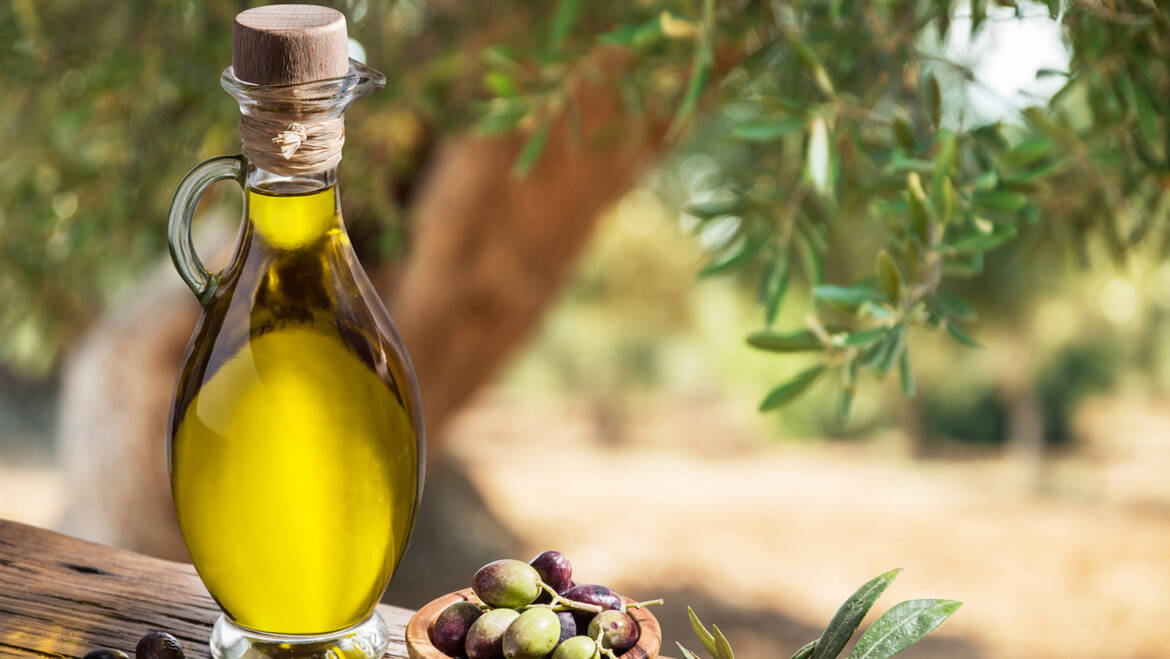A research team led by Hunter College has shown that certain extra-virgin olive oils kill human cancer cells with no obvious effect on normal cells, according to a new study published in PLOS ONE. Previous studies demonstrated that a component found in some olive oils—oleocanthal—has this cancer-killing power. The new study demonstrates that olive oils rich in oleocanthal are powerful enough to kill cancer cells, while oleocanthal-poor olive oils are not.
Recognizing that different olive oils have different oleocanthal concentrations due to their origin, harvest time, and processing methods, the researchers tested a variety of olive oils to determine their respective concentrations of oleocanthal, which ranged from very low to very high. The olive oils that had high oleocanthal content completely killed in vitro cancer cells in a manner similar to purified oleocanthal. The olive oils with average oleocanthal content reduced viability, but to a lesser extent. Those with no oleocanthal had no effect on cell viability.
In addition to these in vitro findings documented in the article titled “Oleocanthal and Oleocanthal-rich Olive Oils Induce Lysosomal Membrane Permeabilization in Cancer Cells,” the researchers found that injection of oleocanthal into mice engineered to develop pancreatic neuroendocrine tumors reduced their tumor burden and extended their lifespan. The oleocanthal injections extended the lives of the mice by an average four weeks. Based on a lifespan conversion, oleocanthal—if it has the same effect in humans, which is not yet known—might extend human life by 10.4 years.
The new study builds on previous research conducted by David Foster, PhD, Rosalyn Yalow Professor in the Department of Biological Sciences at Hunter College, including the co-authored 2015 article “Oleocanthal Rapidly and Selectively Induces Cancer Cell Death via Lysosomal Membrane Permeabilization,” published in the journal Molecular and Cellular Oncology.
“Whether oleocanthal can be used as a magic bullet to target cancer cells is not clear,” said Professor Foster, an author of the new study. “However, the data provided in this article validate studies indicating that extra virgin olive oils can prevent cancer.”
“Today, there are no brands of olive oil sold at grocery stores in the United States that mention ‘oleocanthal’ or other polyphenols on their label, and this might change as producers of olive oil catch up with the scientific research, and consumers become more savvy,” said Limor Goren, PhD, Research Associate at Hunter College and lead author of the new article. “Before then, health-conscious consumers can find oleocanthal-rich oil in specialty olive oil stores or online by searching for terms like ‘oleocanthal’ or ‘polyphenol rich olive oil.’”
She adds that consumers can also do their own taste test for oleocanthal: “Taste a small amount of an extra virgin olive oil; if there is a signature stinging sensation felt at the back of the throat, that is an indication of oleocanthal. It should feel peppery.”
The current study, which was conducted by scientists from Weill Cornell Medicine, Rutgers University, and Albert Einstein College of Medicine, in addition to Hunter College, supports earlier findings of how oleocanthal kills cancer cells. Oleocanthal induces damage to cancer cells’ lysosomes, cell components that contain enzymes used to break down larger molecules like proteins. The oleocanthal degrades the integrity of the lysosomal membrane, releasing the enzymes into the cells’ cytoplasm, which leads to cell death. Cancer cells often have larger and more numerous lysosomes, making them more vulnerable to oleocanthal than other cells.

